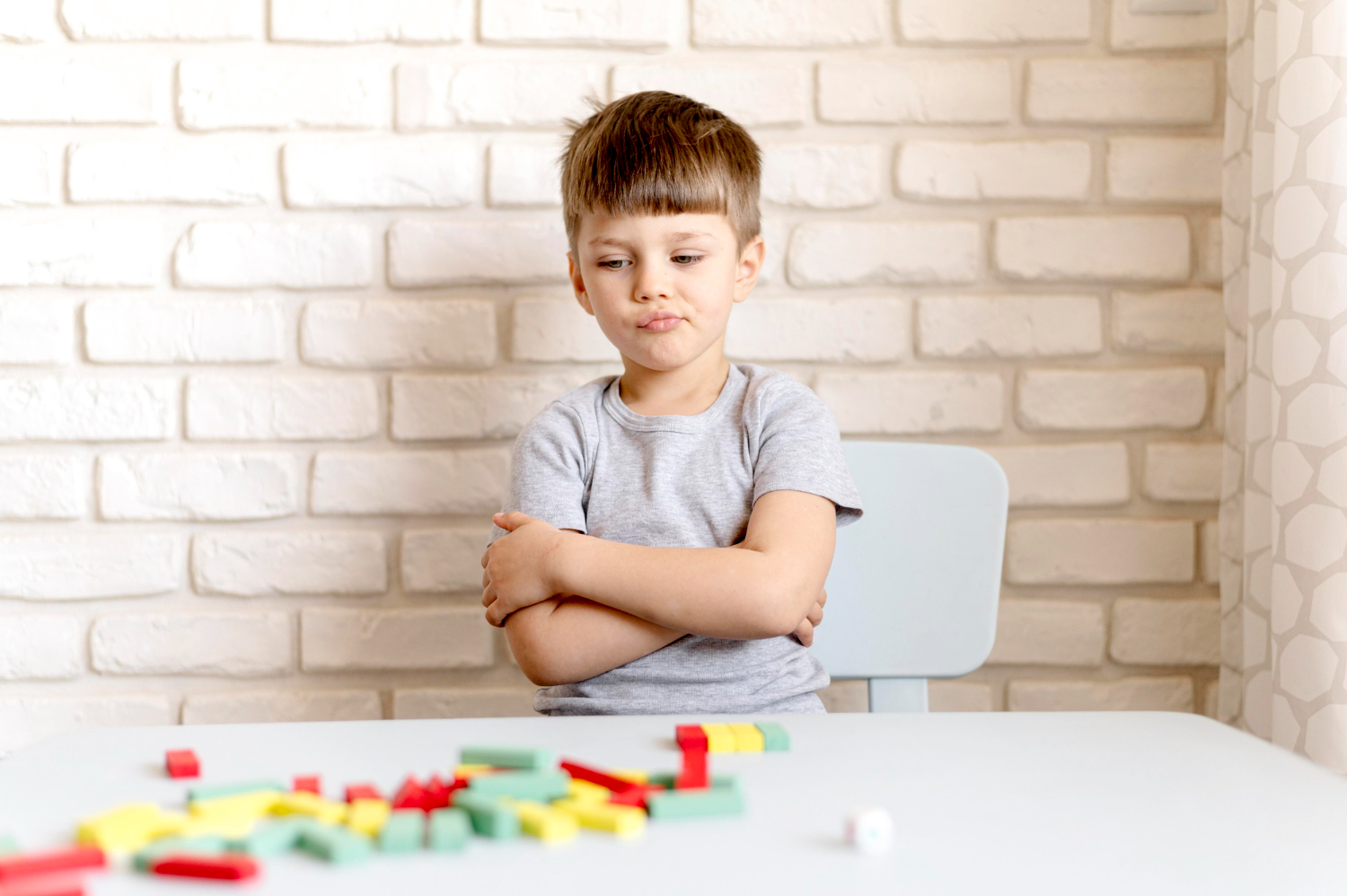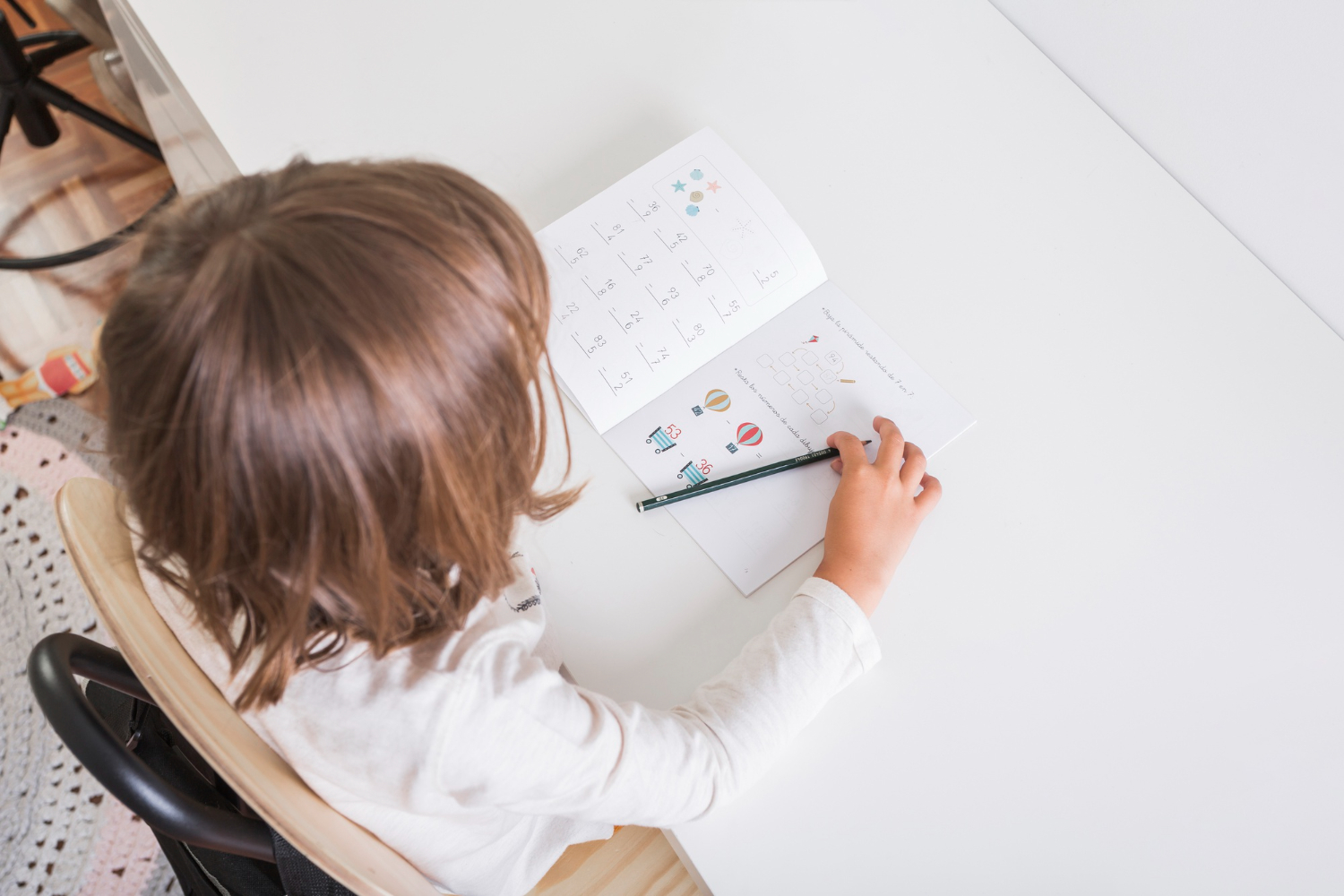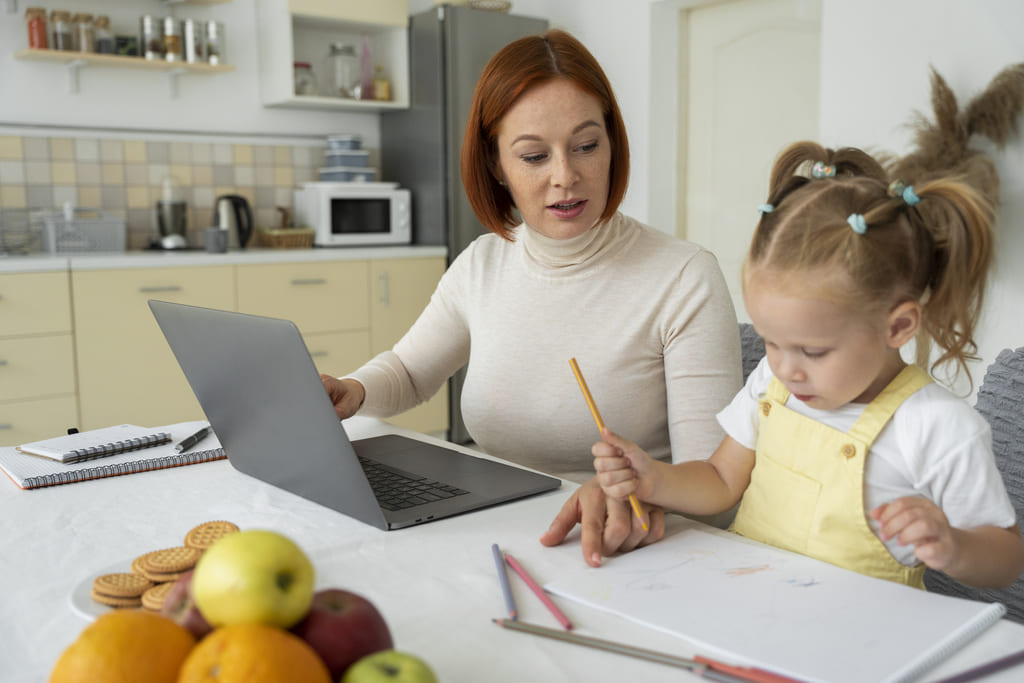
A child's lack of concentration is a problem that keeps many parents awake at night. Your little one is daydreaming, forgetting tasks, and your requests to try to focus only last a few dozen seconds. This is a sign that it's worth considering how to support your child's attention and focus development. Check out our practical tips and discover various ideas and accessories that can help.
Lack of focus and concentration in a child – reasons you need to consider
What causes a child to lack concentration? The most common causes of the problem are:
- fatigue and lack of sleep;
- excess stimuli (screens, noise, chaos around);
- improper diet (e.g. too much sugar);
- boredom and lack of adequate stimulation;
- stress and emotional tension.
Some children naturally struggle to maintain attention – it's part of their temperament. That's why it's so important to approach each case individually, avoid comparing your child to others, and ensure their comfort in everyday life.
Lack of concentration in a child – how to help him?
Instead of getting frustrated, consider a strategy. You can improve your child's concentration by instilling specific habits. See what you can do.
1. Create a space that promotes concentration
The environment is crucial. It's worth creating a distraction-free learning and play area in your child's room. The following are excellent options:
- desk organizers that will help you keep things tidy;
- lamps with natural light and adjustable intensity;
- soundproofing mats or acoustic panels if the house is noisy.
2. Introduce rituals and a clear daily framework
Children thrive when they know what's ahead. Consistent mealtimes, study times, and playtimes help structure their day and better manage their energy. For example, you can use weekly planning boards with colorful stickers or educational clocks to help them understand the passage of time.
3. Exercise is health. Plan your activities wisely.
Do you think a distracted child should sit still? Nothing could be further from the truth! Physical activity has a beneficial effect on the nervous system and improves the ability to concentrate . Choose:
- sensory toys (like squishy toys or stress balls) can help calm down and reduce tension;
- rehabilitation balls for sitting while doing homework support balance and activate postural muscles, which translates into better concentration;
- a crawling tunnel, a garden trampoline or a balancing set – such play provides a lot of fun and at the same time stimulates the child to maintain attention.
4. Ensure a balanced diet and hydration
It's impossible to concentrate if your body doesn't have the energy to function. Therefore, in addition to exercise and a healthy environment, it's important to pay attention to what you put on your plate.
- A nutritious breakfast is a must – it should consist of complex carbohydrates, healthy fats (e.g. avocado) and protein sources.
- Don't forget about water during the day - children often drink too little.
A practical solution is to use thermal bottles for children - they are colorful, safe and often equipped with a special spout that prevents the drink from spilling.

Lack of concentration in a child – what to do when the problem worsens?
If, despite your efforts, your child continues to have significant attention difficulties, it's worth consulting a child psychologist . This is especially true if the difficulties persist at preschool or school, impact peer relationships, or are accompanied by high levels of motor agitation.
Remember – sometimes a lack of concentration is just a phase you have to go through, but in some cases it requires more support. Both are perfectly fine! Remember that working on your child's concentration doesn't mean forcing them to sit in silence for an hour . It's a result of everyday decisions about spending time together, playing, and the way their home space looks.
Start by gradually introducing small changes and patiently guiding your little one through the process . Focus, like riding a bike, is a learned skill – it's your job to ensure learning takes place in a comfortable environment for your child.
Need inspiration? Check out our suggestions for sensory play and creative projects you can do with your child.





Podziel się:
How to talk to your child about emotions?
Brave as a Preschooler - Preschool Adaptation - A Guide for Parents